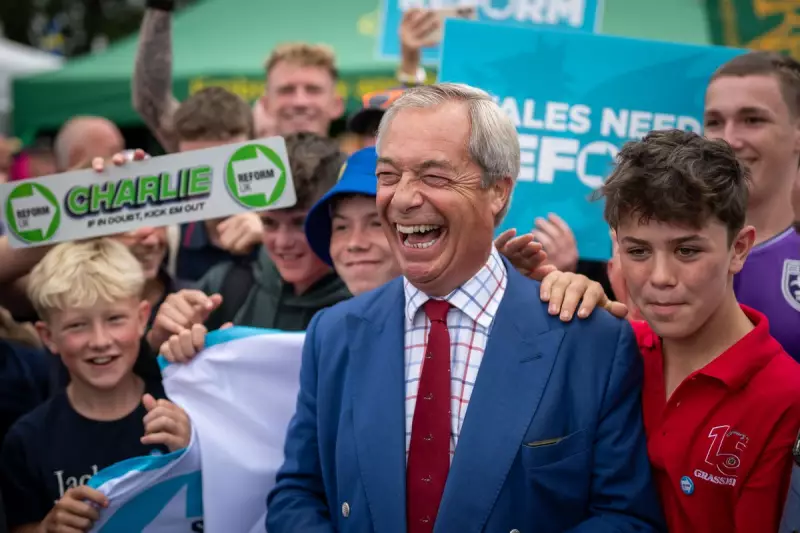
In a political earthquake that is reshaping the landscape of the upcoming General Election, Nigel Farage's Reform UK has achieved a stunning breakthrough, overtaking the Conservatives among voters aged 18-24.
Exclusive new polling by More in Common, shared with The Independent, reveals that just 9% of Gen Z voters now back Rishi Sunak's Tories. In a remarkable turn of events, Reform UK has surged ahead, capturing the support of 11% of this crucial demographic.
A Stark Reversal of Political Fortunes
The findings represent a dramatic collapse in youth support for the Conservative Party, which is now languishing in fourth place among young voters. The data paints a clear picture: Labour dominates with 44% support, followed by the Greens at 22% and the Liberal Democrats at 13%.
This seismic shift suggests that Mr. Farage's anti-establishment message and focus on core issues like immigration and net zero are resonating with a segment of the younger electorate in a way that traditional conservatism is not.
Beyond the Stereotypes: Who is the Reform UK Youth Voter?
The poll delves deeper, revealing that Reform's appeal is not uniform across all young people. Its support is significantly stronger among young men, a demographic where the party polls at 16%, compared to just 7% among young women.
This gender divide highlights a fascinating fragmentation within the youth vote, which is no longer a monolithic bloc but is splitting across multiple party lines based on issue priorities and cultural attitudes.
Broader National Trends Echo Youth Discontent
This youth poll mirrors the party's surging national fortunes. Reform UK has now overtaken the Conservatives in two major national polls, with one placing them just two points behind. This surge has sent shockwaves through Westminster and prompted intense internal debate within the Conservative Party about how to counter the Farage threat.
The data suggests that for a significant number of young voters, traditional party allegiances have broken down completely. Disaffection with the two-party system, economic anxieties, and strong stances on specific issues are creating unexpected new political alliances.
A New Political Reality
Luke Tryl, Director of More in Common, emphasised the significance of the findings: "While Labour and the Greens are still clearly dominating among young people, the fact that Reform are now ahead of the Conservatives with this group shows the scale of the challenge facing the Prime Minister."
He added, "It’s a sign that there is no longer a ‘youth vote’ but that young people are making their mind up based on the same issues and values as the rest of the population."
This realignment indicates that the upcoming election will not be fought on traditional left-right lines alone but will also be a battle for the votes of a disillusioned and issue-driven electorate, including a generation of young people who are up for grabs.





